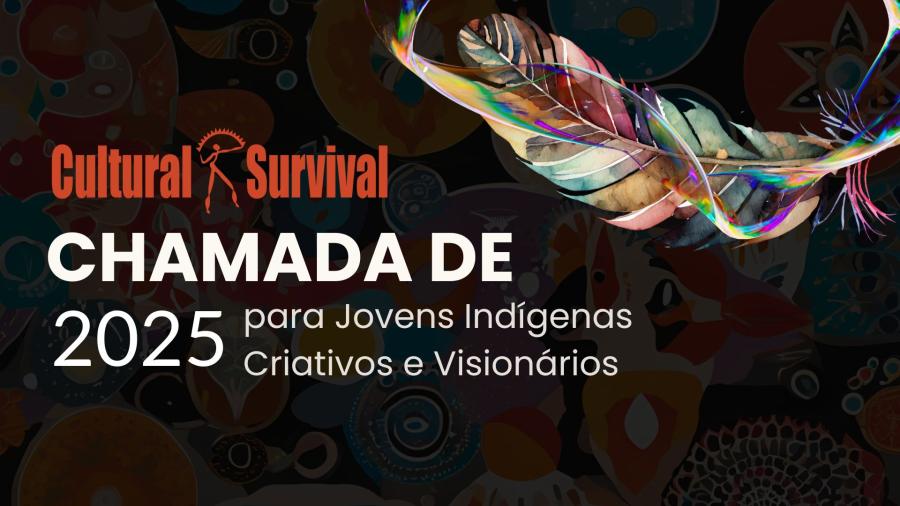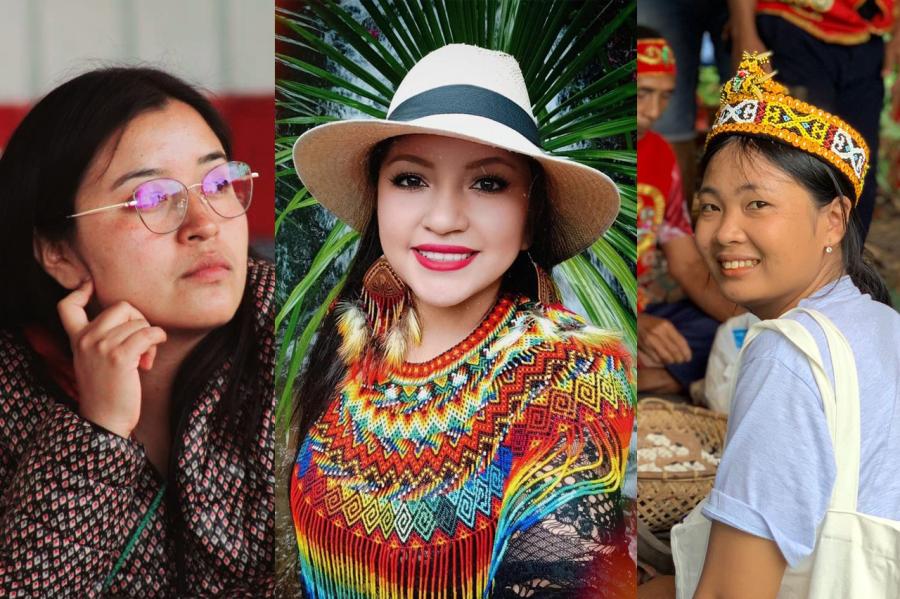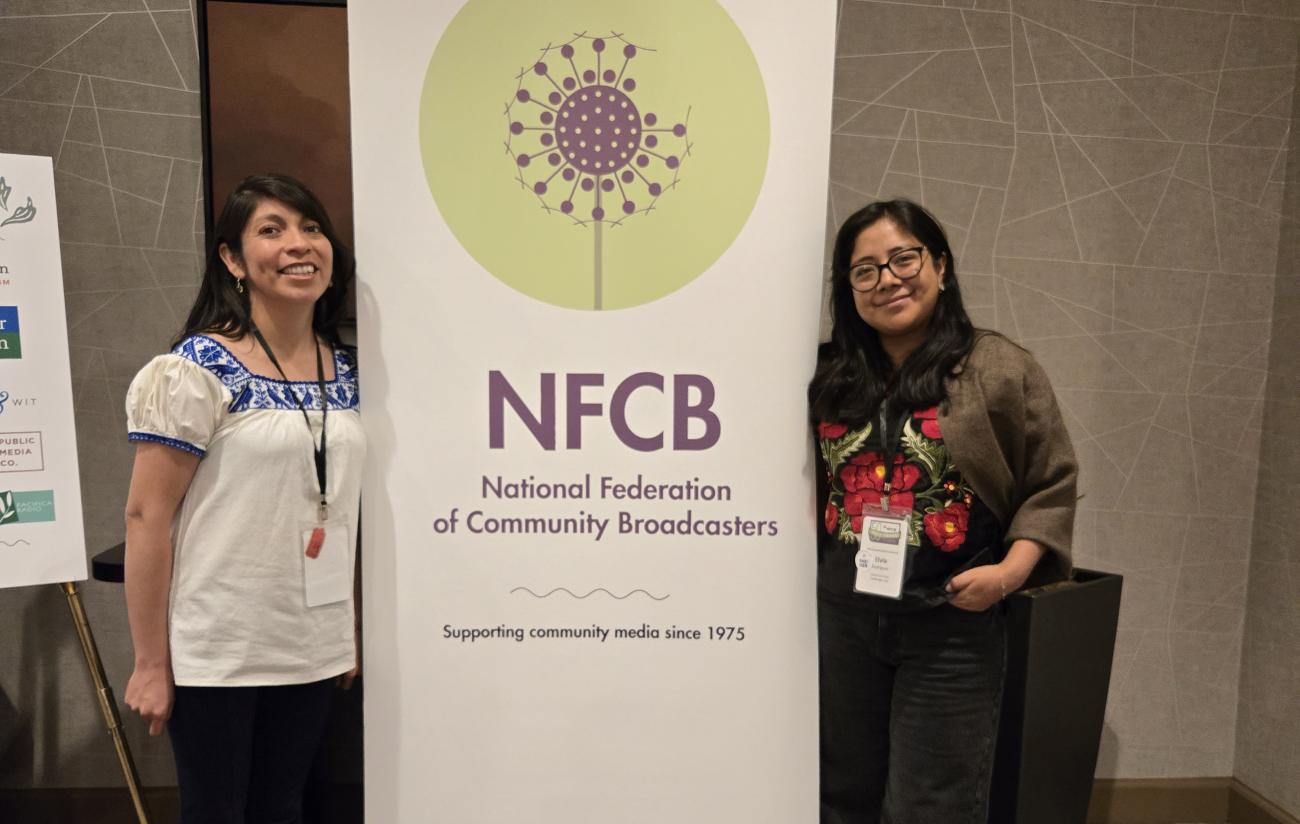
By Diana Ramírez León (Hñähñu)
Axä Jua, ma tuhu Diana Ramírez León, un di bi dui ha hñahñu hai, dra munts’a häi ne di hñä, ma gütañ’u ra tuhu b’üi ri hnini ne di öde ha ra n’a nthebe hñu ma de fm Ximhai ne ra hñahñu hai ne ra Batha ra Bothahi, Hidalgo México.
My name is Diana Ramírez León. I am a Hñähñu (Otomi) member. I am a sociologist and community communicator. For nine years, I have hosted the program "Bui ri hnini - Vive Tu Comunidad," which broadcasts on 103.5 FM Ximhai, the community radio station of the Hñähñu Peoples in the Mezquital Valley region of Hidalgo, Mexico.
This year, I had the opportunity to attend the National Federation of Community Broadcasters Media Conference in Salt Lake City, Utah, where more than thirty community radio stations from the United States and Mexico gathered. At this event, I reconnected with the inspiration of community radio. Despite speaking different languages, the language that unites us is the spirit of the movement fighting for freedom of expression.
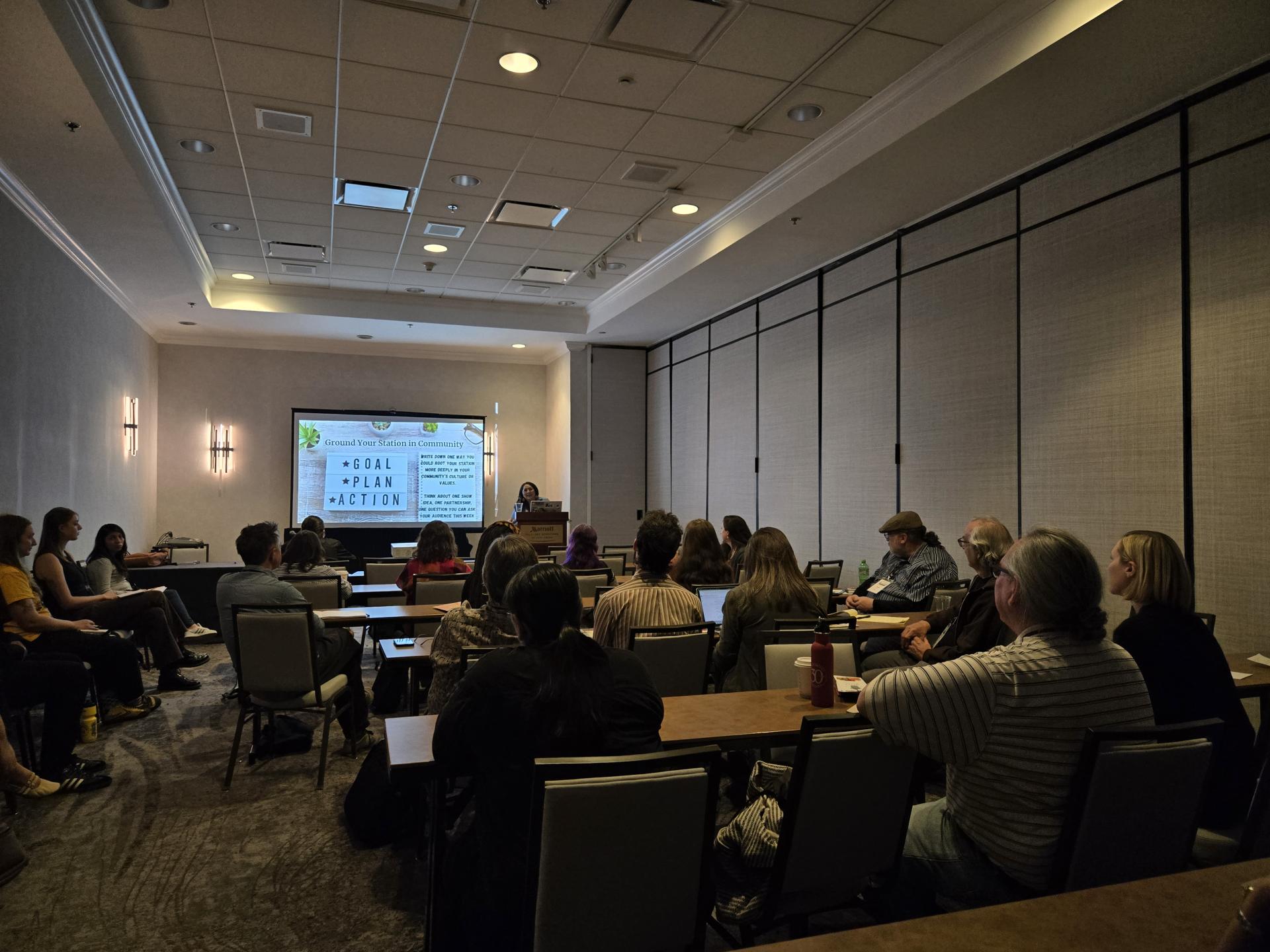
During the event, I was able to discern that the community radio movement coexists in two ways: first, the struggle continues against a two-headed monster that represses and seeks to erase voices, especially the insolent ones, that is, those of us who have broken away from the status quo of the prevailing communication system in the world. Those of us who were in Salt Lake are a community of community communicators committed to being voices for social diversity. In my case, I am also part of an Indigenous community that not only resists but also re-exists.
Secondly, this meeting allowed me to align myself with my colleagues from North America, some of whom belong to the Hopi community, and some from the Latino community. We share the daily adversity of sustaining a free and autonomous community communication project, which we will never abandon. This is how we are united by a single spirit, despite the racism and xenophobia of these violent times.
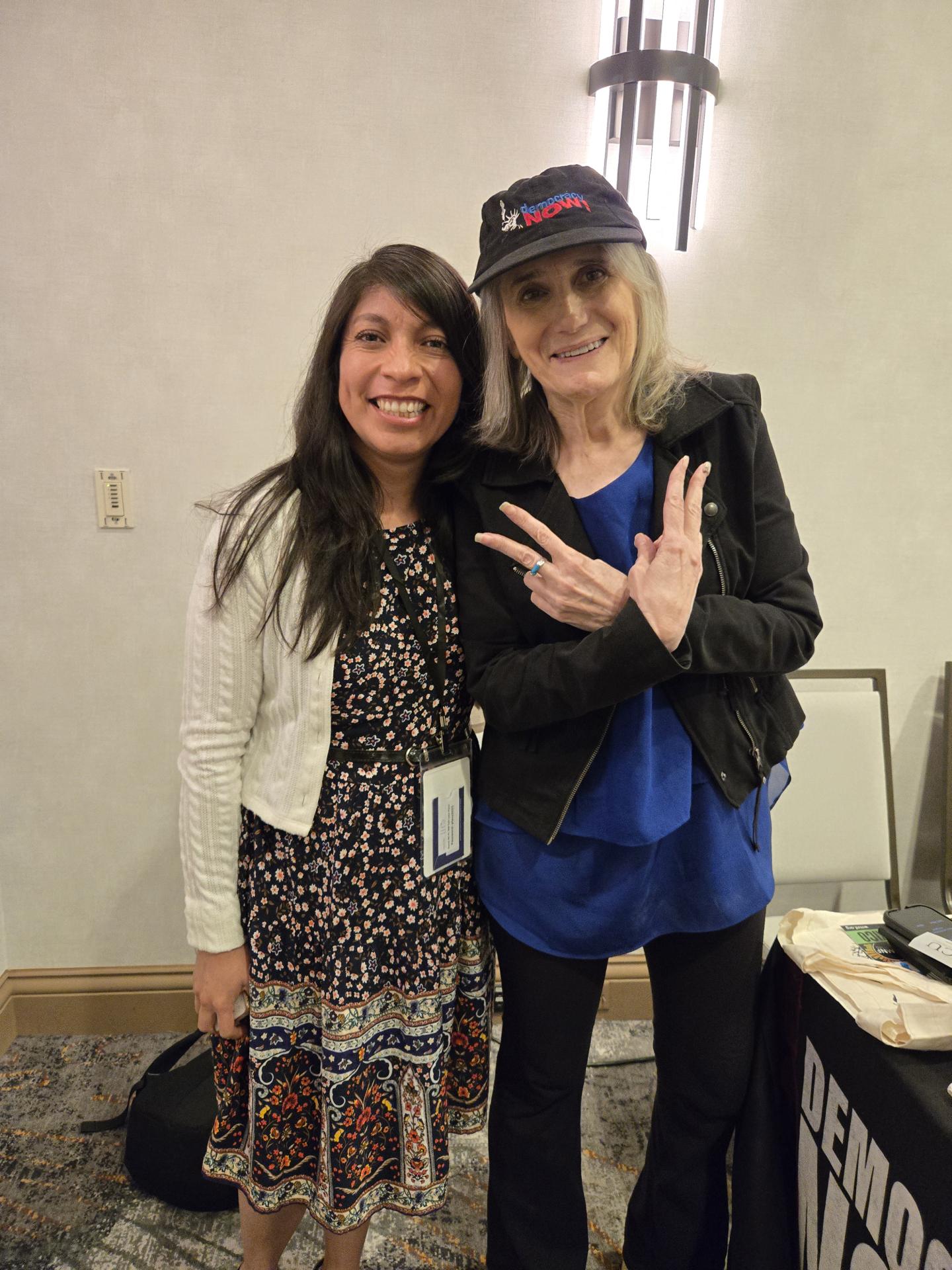
It was a great pleasure to encounter vibrant voices like Amy Goodman of Democracy Now!, who moved us with her story as a journalist, and those of other voices who participated. The United States is a diverse territory, experiencing a constant struggle against a hegemonic power, violent toward differences, intolerant, and exclusionary. However, as Michel Foucault's wise phrase expresses, "Where there is power, there is resistance to power," it was a pleasure to hear and feel that no one can silence or oppress us. Therein lies the strength of community radio in the North of our land, America.
I realized that the function of a true community radio is the same anywhere in the world. My experience with some workshops I attended showed that it communicates difference, celebrates people's history, disseminates diversity, supports local emergencies, especially rural ones, safeguards the oral history of community, Indigenous, and Tribal radio stations, defends the territory and its natural resources, relearns new technologies to safeguard the history of our communities, and is creative in the sustainability of physical infrastructure. Furthermore, it reaffirms its human commitment: "to fulfill the goal of free communication and be an agent of change."
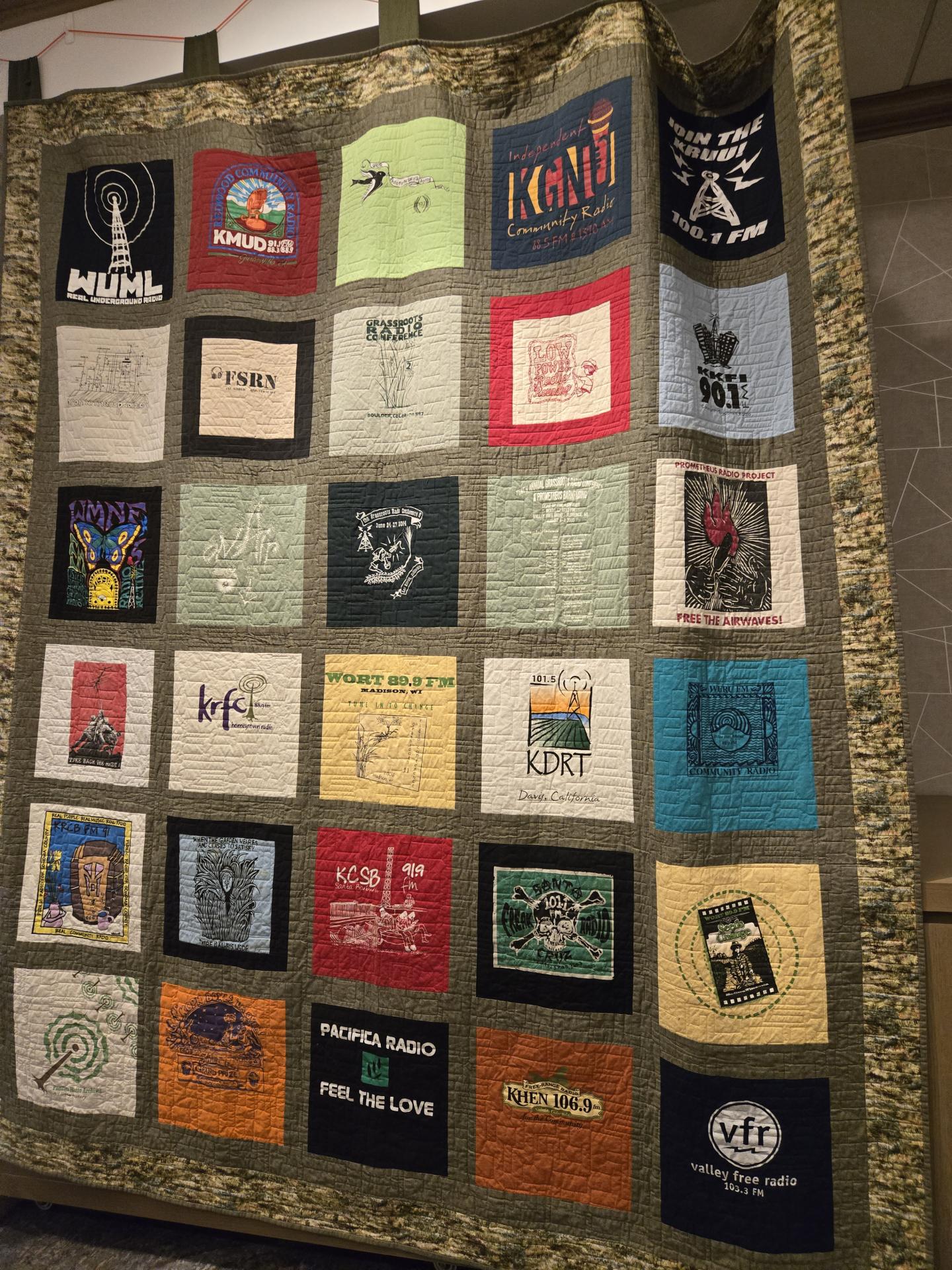
At the conferences, I heard voices calling for utopia and justice, with hope placed in community media and non-profit organizations. Despite limited resources, especially financial ones, community radio stations are doing a tremendous job reaching places and people whose stories aren't included in other media outlets.
I realized that the role of radio, truly community radio, is the same anywhere in the world. My experience with some workshops I attended showed that it communicates difference, celebrates people's history, disseminates diversity, supports local emergencies, especially rural ones, safeguards the oral history of Indigenous and tribal peoples, defends the territory and its natural resources, relearns new technologies to safeguard the history of our communities, and is creative in the sustainability of physical infrastructure. Furthermore, it reaffirms its human commitment: "to fulfill the goal of free communication and be an agent of change."
